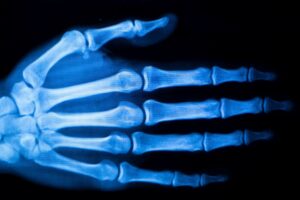Peripheral neuropathy is a condition that affects millions of people worldwide, and it’s a disorder that can significantly impact an individual’s quality of life. This condition can cause numbness, tingling, and other sensations in the limbs, and in severe cases, it can even lead to paralysis. If you or someone you love is suffering from peripheral neuropathy, you may be wondering whether this condition can be cured. In this blog post, we’ll explore this question in detail and provide you with the information you need to understand peripheral neuropathy and its potential treatments.
What is Peripheral Neuropathy?
Peripheral neuropathy is a term used to describe damage to the peripheral nerves, which are the nerves that connect the brain and spinal cord to the rest of the body. This damage can cause many symptoms, including numbness, tingling, weakness, and pain. There are many different types of peripheral neuropathy, and various factors, including diabetes, alcoholism, autoimmune disorders, infections, and injuries can cause them.
Can Peripheral Neuropathy be Cured?
The answer to this question is complex, as it depends on the underlying cause of peripheral neuropathy. In some cases, peripheral neuropathy can be cured, while in others, it can only be managed. Let’s take a closer look at each of these scenarios.
Curing Peripheral Neuropathy
If the underlying cause of peripheral neuropathy is treatable, then it’s possible that the condition can be cured. For example, if the neuropathy is caused by a vitamin deficiency, such as vitamin B12 deficiency, then treating the deficiency can often reverse the neuropathy. Similarly, if the neuropathy is caused by an autoimmune disorder, such as Guillain-Barre syndrome, then treating the disorder can often reverse the neuropathy.
Managing Peripheral Neuropathy
In many cases, peripheral neuropathy cannot be cured but can be managed. There are many different treatments available for peripheral neuropathy, and the right treatment for you will depend on the severity of your symptoms and the underlying cause of your neuropathy. Some of the most common treatments for peripheral neuropathy include:
Medications
There are a variety of medications available that can help manage the symptoms of peripheral neuropathy. These medications include pain relievers, such as acetaminophen, ibuprofen, and opioids, as well as medications that target the underlying cause of the neuropathy, such as anticonvulsants and antidepressants.
Physical Therapy
Physical therapy can be an effective way to manage the symptoms of peripheral neuropathy. A physical therapist can help you improve your balance, coordination, and strength, which can reduce your risk of falls and other injuries. They can also help you develop a home exercise program that can help you manage your symptoms.
Transcutaneous Electrical Nerve Stimulation (TENS)
TENS therapy uses electrical impulses to stimulate the nerves and reduce pain. This therapy is often used to manage the pain associated with peripheral neuropathy.
Lifestyle Changes
Making lifestyle changes can also help manage the symptoms of peripheral neuropathy. For example, if your neuropathy is caused by diabetes, then managing your blood sugar levels can help reduce your symptoms. Similarly, if your neuropathy is caused by alcoholism, then quitting alcohol can help reduce your symptoms.
Surgery
In rare cases, surgery may be necessary to manage the symptoms of peripheral neuropathy. For example, if the neuropathy is caused by a nerve compression, such as carpal tunnel syndrome, then surgery may be necessary to relieve the compression.
FAQs
Is peripheral neuropathy hereditary?
Peripheral neuropathy can be hereditary in some cases, but not all cases of peripheral neuropathy are hereditary. Some genetic disorders, such as Charcot-Marie-Tooth disease, can cause peripheral neuropathy. It’s important to note, however, that just because someone in your family has peripheral neuropathy, it does not necessarily mean that you will develop the condition.
Can peripheral neuropathy be prevented?
In some cases, peripheral neuropathy can be prevented by addressing the underlying cause. For example, if a vitamin deficiency causes neuropathy, then taking a vitamin supplement can help prevent the condition. Similarly, if the neuropathy is caused by diabetes, then managing your blood sugar levels can help prevent the condition from developing.
Can peripheral neuropathy go away on its own?
In some cases, peripheral neuropathy can go away on its own. For example, if a medication causes neuropathy, then stopping the medication may allow the neuropathy to resolve. However, in most cases, peripheral neuropathy will not go away independently and requires treatment to manage the symptoms.
How long does it take to treat peripheral neuropathy?
The length of time it takes to treat peripheral neuropathy depends on the underlying cause of the neuropathy and the severity of the symptoms. In some cases, the symptoms of peripheral neuropathy can be managed within a few weeks of starting treatment. In other cases, it may take several months or even years to manage the symptoms.
Can acupuncture help treat peripheral neuropathy?
Acupuncture may be an effective treatment for managing the symptoms of peripheral neuropathy. Acupuncture involves the insertion of thin needles into specific points on the body to stimulate the nerves and reduce pain. Some studies have shown that acupuncture can be an effective treatment for managing the pain associated with peripheral neuropathy.
Conclusion
Peripheral neuropathy is a complex condition that can significantly impact an individual’s quality of life. While there is no cure for peripheral neuropathy, many different treatments can help manage the symptoms. The key to managing peripheral neuropathy is identifying the underlying cause of the condition and developing a treatment plan that addresses the individual’s unique needs. At Elevation Health, we specialize in diagnosing and treating peripheral neuropathy. We can work with you to develop a personalized treatment plan to help you manage your symptoms and improve your quality of life.



